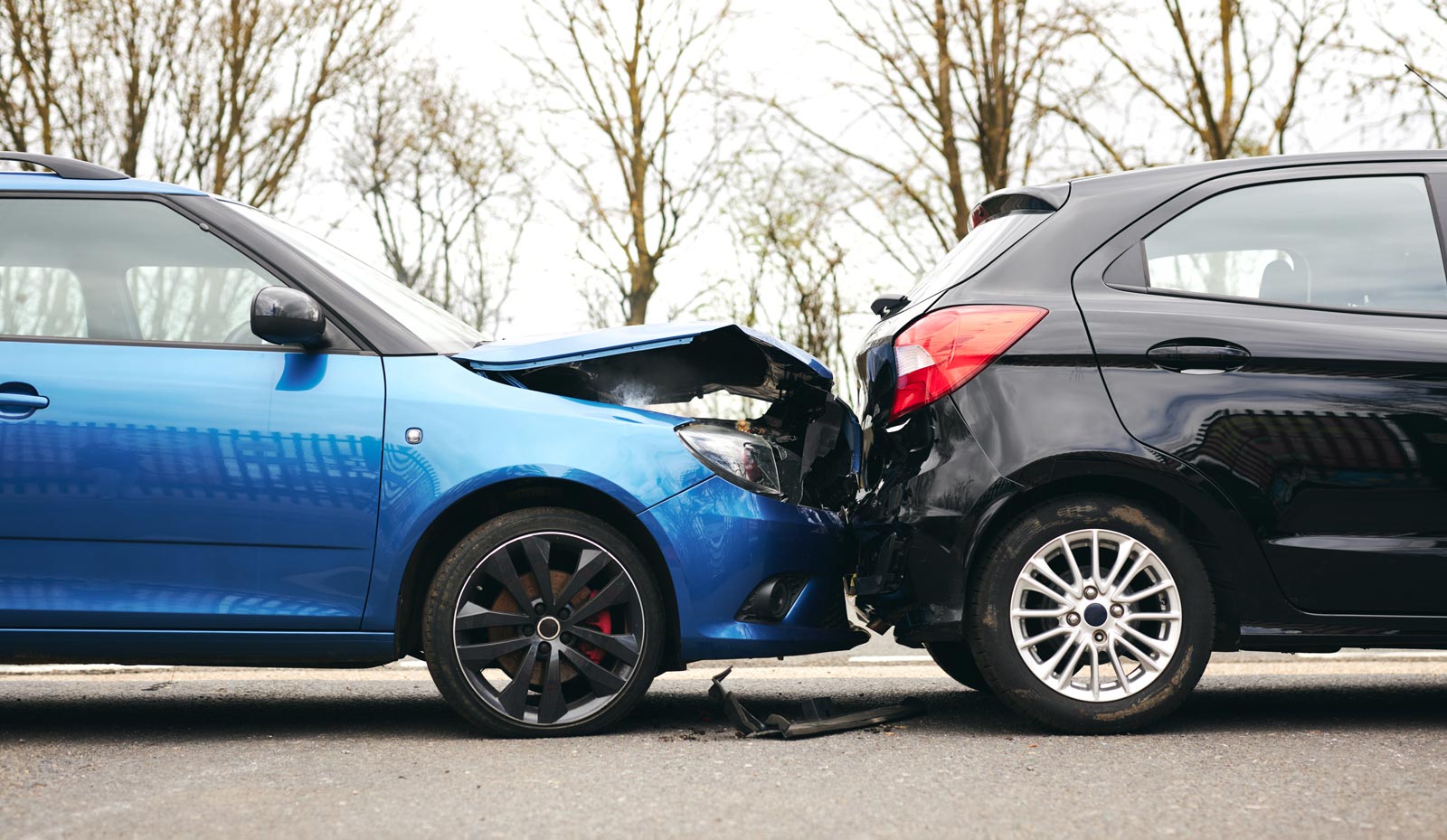In 2016, there were an estimated 49.2 million elderly drivers on the road in the United States. While some senior drivers self-limit their driving (driving short distances or only during daylight hours), many do not cut back. The increased number of elderly drivers on Texas roads puts all of us at risk, including the drivers themselves. Learn more about how Texas monitors elderly drivers’ safety—and what you should do if you’re injured in a car crash with a senior driver.
Why Are Senior Drivers More Likely to Have Fatal Crashes?
There are multiple factors that make elderly drivers more prone to fatal crashes. As we’ve explained before, elderly drivers are more delicate and run a higher risk of head and chest trauma when they’re in a car crash. However, medical conditions like osteoporosis (which increases the risk of bone fractures) and atherosclerosis (which increases the chances of a ruptured aorta) only explain why an elderly driver might die in a crash, not why he or she might cause a wreck.
As we age, our vision, motor skills, and cognition can become impaired. These problems all negatively affect driving skills. Certain medical conditions can also limit an elderly person’s ability to drive. For example:
Arthritis
When movement of the neck, hands, arms, and shoulders is difficult, it impairs a senior citizen’s ability to check blind spots, switch gears, or steer.
Dementia
Alzheimer’s disease, dementia, and short-term memory loss can lead to distracted driving, impulsive maneuvers, and poor mental flexibility.
Heart disease
Lightheadedness, shortness of breath, and fatigue can negatively impact a senior’s driving abilities.
Nerve damage
Numbness in an elderly driver’s feet can cause “pedal confusion,” resulting in acceleration rather than braking (or vice versa).
Cataracts and other vision issues
Problems that decrease your field of vision or impact your ability to see can reduce a driver’s ability to react to pedestrians and other vehicles.
Additionally, medications can cause mental fogginess, blurred vision, and other side effects that make driving difficult.
Problematically, elderly drivers also tend to overestimate their driving abilities. According to the Centers for Disease Control and Prevention (CDC), more than half of senior drivers don’t plan on giving up their license until they’re at least 90 years old. And 10% of drivers report that they will never give up their licenses.
At Crosley Law, we understand how hard it is to give up your driver’s license. Texans have a strong affinity for driving and the freedom that it offers. For many, giving up their driver’s license can cause social isolation and depression.
However, elderly drivers put our community in danger when they ignore their limitations. And with so many new and accessible options for transportation, from taxi services to ride sharing, making the transition is easier now than ever before.
“Elderly drivers put our community in danger when they ignore their limitations.”
How Does Texas Monitor Elderly Drivers?
Texas changed its elderly driver laws in 2007 in response to a crash involving a 90-year-old driver who ran a red light and killed a 17-year-old student. This did not change driver’s license procedures for anyone under age 79. However, if a loved one suspects you are an unsafe driver, he or she can ask the Department of Public Safety (DPS) to perform an unsafe driver investigation at any time.
If you’re between age 79 and 84, you must renew your license in person every six years and pass a vision test. Once you reach age 85, you must renew your license every two years in person and pass a vision test. If there are concerns about your abilities, DPS can also demand a road or driving knowledge test.
DPS can also restrict a driver’s license. The most common restriction is requiring the use of glasses or contact lenses while driving. However, other restrictions might limit your speed to 45, prohibit you from driving on freeways, or allow only for daytime driving.
Finally, DPS can revoke your driver’s license if you cannot drive safely due to medical conditions. If you score poorly on a road test, DPS might request medical information from your doctors. Based on this review, it might decide to terminate your driving privileges.
Does Texas Offer Drivers Enough Protection From Dangerous Elderly Drivers?
Truthfully, there isn’t a clear-cut answer. Some states, such as California, go much further to restrict driving privileges when a senior citizen has certain medical conditions. Other states don’t impose any age-specific restrictions.
It’s important to emphasize that DPS is only one part of the equation. Families, physicians, and concerned community members shouldn’t ignore warning signs of unsafe driving. These signs might include:
- Reports of getting lost while driving
- Unexplained damage to a senior citizen’s vehicle
- Difficulties walking (many of the motor groups you need to walk are also necessary for driving)
- Inability to read normal- to large-sized print
Evidence also suggests that when doctors encourage a senior citizen to stop driving and his or her family agrees, the elderly driver is more likely to comply.
We Understand the Unique Challenges of Car Accident Claims Against Elderly Drivers
Crosley Law has handled many car wreck claims involving older drivers. In fact, we handled one well-known case in which a bicyclist was seriously injured by an elderly driver who had become drowsy behind the wheel and put his head down to rest.
We’ve also dealt with injury claims involving:
Pedal confusion
An elderly woman confused her gas pedal with the brake and crashed through a restaurant’s front window, seriously injuring our client.
Expired driver’s licenses
DPS did not renew an older man’s license due to his macular degeneration (an eye condition that damages your central vision). He continued to drive and smashed into our client’s work truck injuring a man and a woman.
Confusion at an intersection
We’re currently representing a young woman who suffered a mild traumatic brain injury after a 94-year-old man became confused at a major intersection and caused a serious wreck.
While some of these issues, such as failure to yield, are common across many age groups, others (such as health-related crashes) tend to involve older drivers.
RELATED ARTICLE: A Breakdown of Left Turn Scenarios: The Importance of Keen Attention
All car crash claims require a careful analysis of the accident reports, witness statements, and medical evidence. But claims against elderly drivers are particularly challenging. Juries tend to be more sympathetic to older drivers, even if there’s overwhelming evidence that the elderly driver was negligent. We also understand the unique challenges seniors face — especially when they are the victim of a car wreck. But when someone is at fault for a crash, regardless of their age, we work tirelessly to hold them accountable for the injuries they caused. We use well-prepared legal arguments, supporting evidence, and careful calculation of damages to fight for our clients.
RELATED EBOOK: 5 Mistakes to Avoid After an Auto Accident
Crosley Law: We Fight for Car Accident Victims in San Antonio and Across Texas
If you or a loved one have been injured in a car crash involving an elderly driver, contact Crosley Law for a no-risk, free consultation. When you work with us, you’ll have a team of experienced lawyers who truly understand how a vehicle wreck can change your life forever. You can easily contact us through our online form or by calling 210-LAW-3000 | 210-529-3000.
References
American Geriatrics Society & A. Pomidor, Ed. (2016, January). Clinician’s guide to assessing and counseling older drivers, 3rd edition. National Highway Traffic Safety Administration. Retrieved from https://www.nhtsa.gov/sites/nhtsa.dot.gov/files/812228_cliniciansguidetoolderdrivers.pdf
Background on: older drivers (2017, June 1). Insurance Information Institute. Retrieved from https://www.iii.org/article/background-on-older-drivers
The content provided here is for informational purposes only and should not be construed as legal advice on any subject.









